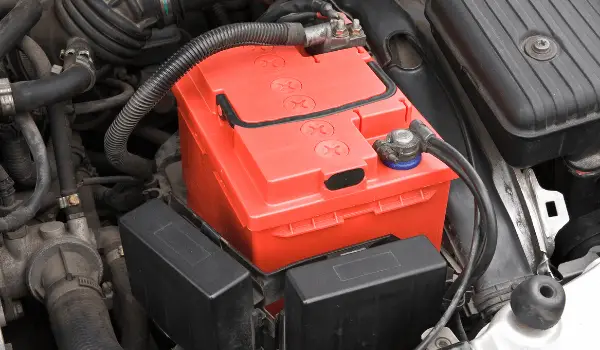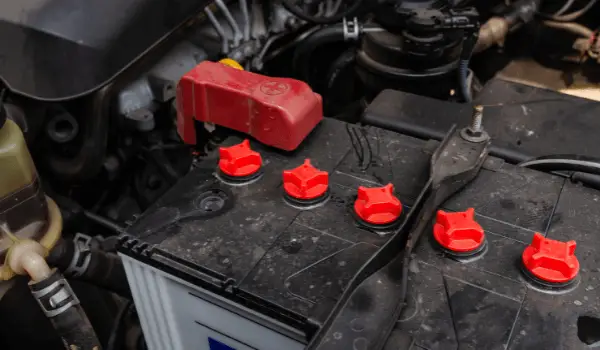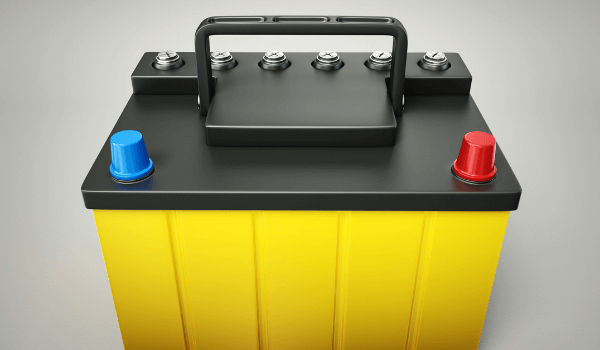
When you start thinking about your car battery life, you might consider how long you can continue using it before your car needs a recharge. Or, you might be thinking about how much space you have in your car. Whatever the case may be, it’s never been more important to optimize your car battery life for optimum performance.
Whether you are just getting started with your car battery life or looking to improve your driving habits, you’ll find help on this page helpful and we’ll be happy to explain how you can optimize your car battery life for better performance.
Why Is Car Battery Life So Important?
First and foremost, it’s important to understand the relationship between car battery life, your car’s performance and your driving habits. That way you can make the most of your car battery life when you need it most.
The more frequently you drive your car, the more frequently its battery will be drained. If you drive a lot, or if you drive in heavy traffic, or if you have a long commute to work every day, then it’s likely that your car battery will need recharging on a fairly regular basis.
Car battery life is also dependent upon your driving habits. The more you drive your car, the less time the battery will have to discharge before it needs recharging.
In addition to these two factors, it’s important to understand that the more frequently you charge your car’s battery, the quicker the battery will lose its ability to hold a charge. This is because the chemical reactions that occur within the battery over time cause some of its components to change, and this change causes it to be less efficient at storing energy for later use.
If you want your car’s battery life to last as long as possible, you need to keep it charged and fully charged as often as possible.
How Many Years To Wait Before Replacing The Car Battery?
If you’ve never really asked yourself or your mechanic this question, it’s time to find out. The life of a car battery you bought new will be between 4 and 5 years. However, this figure may vary depending on the brand and range of the latter and the use you make of it.
Here it is a conventional period given by the manufacturer so that you can monitor and maintain your battery. Also in accordance with your daily use, this estimation time can be doubled. On average, it is necessary to wait until the 8th year before noticing a deterioration at the level of this component. However, you must act according to the situation and your mechanic’s advice.
How Do I Know That My Battery Is Losing Its Initial Performance?
Sooner or later your car battery will start to show signs of draining and it is easily noticeable. Since it is a material subject to wear and tear, it will one day have to be replaced for your vehicle’s good.
In general, the battery is degraded when it can no longer start the automobile with a quarter-turn of the key. Insufficient power generated by the battery causes this. If it weakens faster than average after recharging, it’s time to think about finding a replacement item.
You should know that it must provide a battery voltage for a stationary car of 12.5v. You can check this information by equipping yourself with a personal voltmeter or in the service centers of automobile mechanics.
However, it should not be forgotten that a starting problem can also be linked to the vehicle’s alternator which begins to fail. If this is the case, the battery will be used all the more and will again lose its performance from the start.

What Causes Early Battery Deterioration?
As stated above, this component may be subject to premature wear despite the estimated car battery life. The first factor is undoubtedly the maintenance and how it will be solicited daily. Indeed, a car that you will use to cross a long distance constantly will have a more resistant battery.
On the contrary, vehicles driving in town have a less efficient battery and this is easily explained. A long continuous run requires using this power component only once when starting. On the other hand, for a city car, the crowded traffic can lead you to cut and restart the engine several times during a day.
The change of location can also be a source of problems for the battery if the conditions are extreme. In a region that experiences extreme cold, a battery accustomed to serving in a more clement place will quickly lose its performance.
This is simply explained by the fact that you will want to use the heating which is very voracious in energy. Same case in a very hot area where the air conditioner is used at any time of the day.
In addition to the air conditioning, several functions such as the headlights, the wipers or the dashboard also contribute to degrading the battery. Nevertheless, the battery normally supports these options in a non-abusive use.
It should also not be forgotten that recharging a maintenance-free battery beforehand will cause it to lose its power fairly quickly. In this sense, remember to check the electrolyte level and the heavy irons since it is important to take care of your auto power source. A dry battery will discharge faster.
Optimize The Longevity Of Your Car Battery
If we have talked about the main lines of what concerns the car battery, we must now know how to preserve it. Since the price of a battery can be quite expensive, it is advisable to maintain it to make it last. If you want advice at this level, it is not on the side of a built-in oven buying guide that you will have to look at.
The first rule to respect will be the charging time of your car’s battery, which varies according to the type of automobile. On average, this giant battery takes between 6 and 12 hours to recharge. It is essential to know how long it will take to recharge a battery before using it again, except in cases of force majeure.
It is just as important to know how to choose the model and range best suited to your vehicle to meet your needs properly. If we talk about the engine, you should know that a gasoline model should not be equipped with a battery for a diesel car and vice versa.
If you have to make several short trips to the city, it is recommended not to use your car. The reason is repeated over-consumption, causing the car battery’s life to decrease. Choose walking and public transport for this.
If the maintenance-free battery is completely discharged, the first reflex to adopt will be to connect it to the mains. It is then enough to perform a slow reload of several hours so that it can regenerate calmly. However, be careful not to get into the habit of completely emptying it, as it may no longer be recoverable.
What Shortens The Life Of A Car Battery?
The biggest cause of battery failure is overcharging. If you use your car’s battery to charge other devices or leave your car’s battery on while it’s not in use, you are putting a lot of strain on the battery.
If you do this for a long period of time, then eventually, the battery will fail due to being overcharged.
This type of damage is often referred to as deep-cycle damage. The chemical reactions occurring within the battery are similar to those that occur during a deep-cycle application, like an automobile battery that powers an electric trolling motor or a boat engine.
The result is that after overcharging, your car’s battery will eventually need replacing because it can no longer provide enough power. Your vehicle may still start and run for a short period after this happens, but it will be very sluggish and won’t last long without being recharged again soon afterwards.
FAQs
How Can I Keep A Car Battery Healthy When Not In Use?
If you do not use your car’s battery for an extended period of time, then you should store it in a cool, dry place. This will help to prevent the chemical reactions that cause damage from starting and keep the battery healthy.
If you do not have access to a cool, dry place to store your car’s battery, you can get a battery storage device designed to keep your car’s battery healthy when it is not in use.
The devices are made of plastic and contain an electrolyte solution that keeps the battery charged even if it isn’t being used for weeks at a time. It also helps to protect the battery from short-circuiting due to vibration during transport or storage.
The only issue with these devices is that the electrolyte solution slowly leaks out over time, which can cause damage if not replaced regularly.
How Can I Make Sure My Car’s Battery Doesn’t Get Damaged By Overcharging?
First of all, you need to avoid overcharging your car’s battery. This can be done by using a battery charger with a temperature cutoff designed to stop charging when the battery is fully charged.
If you are using a trickle charger, then you will need to make sure that you don’t leave it plugged in for too long as this could overcharge the battery and cause it to fail.
You should also make sure that you only charge your car’s battery when it is cold, which will help prevent the chemical reactions that cause damage from starting.
If you have been storing your car’s battery for an extended period of time, it may have started to lose its charge, so it is best to charge it before using it again.
To ensure accurate results when determining how much power your car requires, then use a multimeter or voltmeter instead of just relying on the engine’s computer or any other device that measures voltage.
When Should I Stop Charging My Car Battery?
You should stop charging your car’s battery when it is fully charged, as this will help prevent it from being damaged.
You should also stop charging your car’s battery if you have been driving it for a long time, as this can cause the battery to lose its charge and need to be recharged.
If you are using a trickle charger then you should make sure that you always unplug it when the battery is fully charged, as this will stop overcharging your car’s battery and damage it.
Also, when the engine on your car has been turned off for a while, then you will need to recharge the battery so that the engine can start again.
If you have been storing your car’s battery for an extended period of time, I recommend charging it before using it again.
Does Idling A Car Lose Charge Of The Battery?
Yes, idling a car will cause it to lose charge and need recharging.
The effects of idling on the battery can also be reduced if you use a trickle charger or a smart charger.
If you just want to keep the battery in good condition, I recommend that you use a trickle charger or smart charger to keep the battery in good condition.
However, if your car has been sitting idle for too long, you should recharge it before using it again.
How Often Should I Start My Car To Keep The Battery Charged?
I would recommend that you just start your car every day, but if you only use your car daily, then this is not necessary.
Try to keep the battery in good condition and when it gets low on charge then recharge it.
If you are constantly starting your car then you will be causing the battery to lose charge.
The best way to keep your battery fully charged is by keeping it plugged in, but if you have an extended period of time where it has not been used for a while, I recommend that you start the engine every day.
If you have an extended period of time when your car has not been used for a while, I recommend that you disconnect the battery from the mains and either recharge it or let it completely discharge before using it again.

How Do I Know When My Car’s Battery Needs Recharging?
You should always check how much charge is left in your car’s battery before using it.
The best way to do this is by using a voltmeter.
If you are unsure how much charge your car’s battery has left, you should always start the engine before using it.
I recommend that you use a voltmeter to check how much charge is left in your car’s battery.
Does Charging A Car Battery Make It Last Longer?
Yes, but only if you have a charger capable of charging the car battery.
If you are using a charger that is not suitable for charging your car’s battery, it will last less time.
Should I Periodically Charge My Car Battery?
Yes, you should periodically charge your car battery.
If you are using a charger that is not suitable for charging your car’s battery, it will last less time.
If you are using a charger suitable for charging your car’s battery, it will make it last more time.
What Is The Average Life Of A 12-Volt Car Battery?
The average life of a 12-volt car battery is between three to five years.
The life of a 12-volt car battery will depend on how often you use your car, how much you drive it and what type of charger you are using.
If you do not use your car very often, the battery will last less time. If you use your car very often, the battery will last more. If you use a charger that is not suitable for charging your car’s battery then the battery will last less time. If you use a charger suitable for charging your car’s battery, the battery will last more time.

Leave a Reply